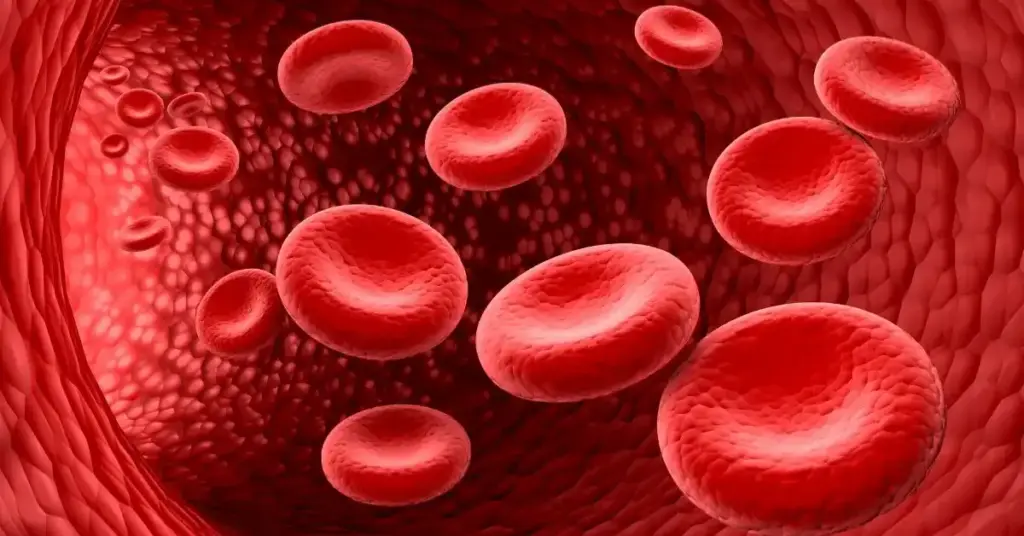
The immune system is the body’s natural defense mechanism, designed to protect against infections, viruses, and harmful pathogens. When this system is weakened or unable to function properly, it results in immunodeficiency disorders. These conditions can be inherited or acquired during a person’s lifetime and may leave individuals vulnerable to frequent infections, slow recovery, and severe complications.
Globally, millions of people are affected by some form of immunodeficiency, ranging from mild to life-threatening. Primary immunodeficiency disorders are usually genetic, appearing early in life, while secondary types often develop due to external factors such as medications, chronic illness, or environmental exposures. Understanding the causes, types, and treatment options is essential, as early diagnosis and proper management significantly improve quality of life. With growing advancements in immunology, treatment approaches are becoming more personalized, offering better control and protection for individuals facing these conditions.
A weak immune system refers to a reduced ability of the body to fight infections and maintain balance. When the immune response is compromised, the body cannot effectively identify or eliminate harmful microorganisms. This weakness often leads to recurrent illnesses, longer recovery times, and an increased risk of complications. Individuals with a weak immune system are not only more prone to common colds and flu but may also face serious bacterial, viral, or fungal infections. In some cases, even routine illnesses can escalate quickly, requiring urgent medical care.
Recognizing the signs of immune weakness allows for earlier medical intervention and preventive care. A weak immune system does not always indicate an underlying disorder, but persistent symptoms often warrant detailed evaluation by healthcare specialists.
Immunodeficiency disorders are categorized into primary and secondary types. Each type has distinct characteristics, causes, and impacts on overall health. Primary immunodeficiencies are genetic conditions, often diagnosed in childhood. They involve defects in the immune system’s development or function, making individuals vulnerable to infections from an early age. Examples include Severe Combined Immunodeficiency (SCID) and Common Variable Immunodeficiency (CVID). Secondary immunodeficiencies develop later in life due to external influences such as chronic diseases, infections, or medications. Conditions like HIV/AIDS, chemotherapy-induced immunosuppression, and malnutrition fall into this group.
Differentiating between these types is essential for accurate treatment planning. While primary forms are lifelong, secondary types may be reversible if the underlying condition is treated. Advances in medical research continue to improve diagnosis and treatment for both categories.
The causes of immunodeficiency disorders vary depending on whether they are primary or secondary. Primary cases are usually due to inherited genetic mutations that affect immune cell development or function. These mutations may impact antibody production, T-cell signaling, or complement proteins, leading to impaired defense against infections.
Secondary immunodeficiencies, however, result from external or environmental influences. Chronic diseases such as diabetes, kidney failure, and cancer can compromise immune health. Similarly, long-term use of immunosuppressive medications, including corticosteroids or chemotherapy drugs, weakens immune defenses.
Understanding these causes helps in identifying individuals at higher risk. Preventive measures, early diagnosis, and proper treatment significantly reduce complications, enabling better long-term health outcomes.
Diagnosing immunodeficiency disorders requires a combination of medical history, laboratory tests, and physical examinations. Since symptoms often overlap with other conditions, thorough evaluation is essential to ensure accuracy. Doctors begin with a review of recurrent infections, severity of illnesses, and family history of immune-related problems. Blood tests are commonly used to measure white blood cell counts, antibody levels, and immune system activity. In some cases, genetic testing is recommended to identify inherited mutations.
In complex cases, biopsies of lymph nodes or bone marrow may be performed to assess immune cell development. Early diagnosis is vital to reduce infection risks, start appropriate treatment, and improve quality of life. Patients with a family history of immune disorders should undergo regular screening for early detection.
Treatment for immunodeficiency disorders depends on the type and severity of the condition. While primary immunodeficiencies cannot be completely cured, therapies aim to strengthen the immune response, prevent infections, and manage complications. Secondary immunodeficiencies are often more manageable once the underlying cause is treated.
For primary disorders, immunoglobulin replacement therapy is commonly used to provide the antibodies the body cannot produce. Stem cell transplantation offers a potential cure for severe cases such as SCID. Antibiotics and antifungal medications are frequently prescribed to prevent or control infections.
Personalized treatment plans are designed by specialists, balancing disease control with quality of life. With proper management, many individuals with immunodeficiency disorders can lead relatively healthy, active lives.
Prevention of immunodeficiency disorders depends largely on whether the condition is primary or secondary. Since primary disorders are genetic, they cannot be fully prevented. However, genetic counseling for families with a history of immunodeficiency can provide guidance for early detection and management.
Secondary immunodeficiencies, on the other hand, can often be minimized through lifestyle changes and medical precautions. Maintaining a balanced diet, staying physically active, and avoiding harmful substances like tobacco and excessive alcohol contribute to stronger immunity.
Although not all immunodeficiency disorders can be avoided, awareness and proactive health choices reduce risks and improve resilience. Preventive strategies play a vital role in limiting infections and supporting long-term health in at-risk individuals.
Managing immunodeficiency disorders requires specialized medical expertise. Immunologists are the primary doctors who diagnose and treat these conditions. They have training in the immune system’s function, identifying weaknesses, and creating treatment strategies tailored to each patient.
Other specialists may also be involved depending on the complications. Infectious disease experts treat recurring or severe infections, while hematologists manage blood-related aspects of the disorder. Pediatric immunologists specialize in treating children with inherited immune conditions.
Coordination among multiple specialists ensures comprehensive care. Since immunodeficiency disorders often affect various organ systems, multidisciplinary treatment is essential. Regular follow-ups, preventive care, and continuous monitoring by trained specialists help improve survival and quality of life.
Immunodeficiency disorders represent a group of conditions that weaken the body’s natural defense system, leaving individuals more vulnerable to infections and complications. While primary forms are genetic and often lifelong, secondary types develop due to chronic illnesses, medications, or environmental factors. Understanding the causes, types, and treatment strategies allows for early intervention, better outcomes, and an improved quality of life. Medical science continues to advance, offering new therapies and improved management strategies. By working with specialists, maintaining a healthy lifestyle, and focusing on preventive care, individuals with weakened immunity can live healthier, more active lives. Awareness, early diagnosis, and personalized treatment are the keys to managing these complex disorders effectively.
Read Also: Best Hematologist in Chennai
The immune system is the body’s natural defense mechanism, designed to protect against infections, viruses, and harmful pathogens. When this system is weakened or unable to function properly, it results in immunodeficiency disorders. These conditions can be inherited or acquired during a person’s lifetime and may leave individuals vulnerable to frequent infections, slow recovery, and severe complications.
Globally, millions of people are affected by some form of immunodeficiency, ranging from mild to life-threatening. Primary immunodeficiency disorders are usually genetic, appearing early in life, while secondary types often develop due to external factors such as medications, chronic illness, or environmental exposures. Understanding the causes, types, and treatment options is essential, as early diagnosis and proper management significantly improve quality of life. With growing advancements in immunology, treatment approaches are becoming more personalized, offering better control and protection for individuals facing these conditions.
What is a Weak Immune System?
Types of Immunodeficiency Disorders
Causes and Risk Factors
How are Immune Disorders Diagnosed?
How are Immunodeficiency Disorders Treated?
Can Immunodeficiency Disorders be Prevented?
Doctor Treats Immunodeficiency Disorders Types
Conclusion
A weak immune system refers to a reduced ability of the body to fight infections and maintain balance. When the immune response is compromised, the body cannot effectively identify or eliminate harmful microorganisms. This weakness often leads to recurrent illnesses, longer recovery times, and an increased risk of complications. Individuals with a weak immune system are not only more prone to common colds and flu but may also face serious bacterial, viral, or fungal infections. In some cases, even routine illnesses can escalate quickly, requiring urgent medical care.
Recognizing the signs of immune weakness allows for earlier medical intervention and preventive care. A weak immune system does not always indicate an underlying disorder, but persistent symptoms often warrant detailed evaluation by healthcare specialists.
Immunodeficiency disorders are categorized into primary and secondary types. Each type has distinct characteristics, causes, and impacts on overall health. Primary immunodeficiencies are genetic conditions, often diagnosed in childhood. They involve defects in the immune system’s development or function, making individuals vulnerable to infections from an early age. Examples include Severe Combined Immunodeficiency (SCID) and Common Variable Immunodeficiency (CVID). Secondary immunodeficiencies develop later in life due to external influences such as chronic diseases, infections, or medications. Conditions like HIV/AIDS, chemotherapy-induced immunosuppression, and malnutrition fall into this group.
Differentiating between these types is essential for accurate treatment planning. While primary forms are lifelong, secondary types may be reversible if the underlying condition is treated. Advances in medical research continue to improve diagnosis and treatment for both categories.
The causes of immunodeficiency disorders vary depending on whether they are primary or secondary. Primary cases are usually due to inherited genetic mutations that affect immune cell development or function. These mutations may impact antibody production, T-cell signaling, or complement proteins, leading to impaired defense against infections.
Secondary immunodeficiencies, however, result from external or environmental influences. Chronic diseases such as diabetes, kidney failure, and cancer can compromise immune health. Similarly, long-term use of immunosuppressive medications, including corticosteroids or chemotherapy drugs, weakens immune defenses.
Understanding these causes helps in identifying individuals at higher risk. Preventive measures, early diagnosis, and proper treatment significantly reduce complications, enabling better long-term health outcomes.
Diagnosing immunodeficiency disorders requires a combination of medical history, laboratory tests, and physical examinations. Since symptoms often overlap with other conditions, thorough evaluation is essential to ensure accuracy. Doctors begin with a review of recurrent infections, severity of illnesses, and family history of immune-related problems. Blood tests are commonly used to measure white blood cell counts, antibody levels, and immune system activity. In some cases, genetic testing is recommended to identify inherited mutations.
In complex cases, biopsies of lymph nodes or bone marrow may be performed to assess immune cell development. Early diagnosis is vital to reduce infection risks, start appropriate treatment, and improve quality of life. Patients with a family history of immune disorders should undergo regular screening for early detection.
Treatment for immunodeficiency disorders depends on the type and severity of the condition. While primary immunodeficiencies cannot be completely cured, therapies aim to strengthen the immune response, prevent infections, and manage complications. Secondary immunodeficiencies are often more manageable once the underlying cause is treated.
For primary disorders, immunoglobulin replacement therapy is commonly used to provide the antibodies the body cannot produce. Stem cell transplantation offers a potential cure for severe cases such as SCID. Antibiotics and antifungal medications are frequently prescribed to prevent or control infections.
Personalized treatment plans are designed by specialists, balancing disease control with quality of life. With proper management, many individuals with immunodeficiency disorders can lead relatively healthy, active lives.
Prevention of immunodeficiency disorders depends largely on whether the condition is primary or secondary. Since primary disorders are genetic, they cannot be fully prevented. However, genetic counseling for families with a history of immunodeficiency can provide guidance for early detection and management.
Secondary immunodeficiencies, on the other hand, can often be minimized through lifestyle changes and medical precautions. Maintaining a balanced diet, staying physically active, and avoiding harmful substances like tobacco and excessive alcohol contribute to stronger immunity.
Although not all immunodeficiency disorders can be avoided, awareness and proactive health choices reduce risks and improve resilience. Preventive strategies play a vital role in limiting infections and supporting long-term health in at-risk individuals.
Managing immunodeficiency disorders requires specialized medical expertise. Immunologists are the primary doctors who diagnose and treat these conditions. They have training in the immune system’s function, identifying weaknesses, and creating treatment strategies tailored to each patient.
Other specialists may also be involved depending on the complications. Infectious disease experts treat recurring or severe infections, while hematologists manage blood-related aspects of the disorder. Pediatric immunologists specialize in treating children with inherited immune conditions.
Coordination among multiple specialists ensures comprehensive care. Since immunodeficiency disorders often affect various organ systems, multidisciplinary treatment is essential. Regular follow-ups, preventive care, and continuous monitoring by trained specialists help improve survival and quality of life.
Immunodeficiency disorders represent a group of conditions that weaken the body’s natural defense system, leaving individuals more vulnerable to infections and complications. While primary forms are genetic and often lifelong, secondary types develop due to chronic illnesses, medications, or environmental factors. Understanding the causes, types, and treatment strategies allows for early intervention, better outcomes, and an improved quality of life. Medical science continues to advance, offering new therapies and improved management strategies. By working with specialists, maintaining a healthy lifestyle, and focusing on preventive care, individuals with weakened immunity can live healthier, more active lives. Awareness, early diagnosis, and personalized treatment are the keys to managing these complex disorders effectively.
Read Also: Best Hematologist in Chennai
Immunodeficiency disorders occur when the immune system cannot fight infections effectively. Examples include Primary Immunodeficiency Disorders (PIDs) like Severe Combined Immunodeficiency (SCID) and Common Variable Immunodeficiency (CVID), as well as Secondary Immunodeficiency Disorders caused by HIV/AIDS, chemotherapy, or organ transplantation. Early diagnosis and proper treatment can reduce infections and improve immune system function.
The five major immune system diseases include Allergies, Autoimmune diseases (e.g., lupus, rheumatoid arthritis), Immunodeficiency disorders (primary and secondary), Inflammatory diseases (like Crohn’s disease), and Cancers of the immune system such as leukemia and lymphoma. Each affects immunity differently, and treatment may involve medications, lifestyle adjustments, or targeted therapies depending on severity.
Signs of being immunocompromised include frequent or severe infections, slow wound healing, recurrent colds, unexplained fatigue, and prolonged illnesses. Lab tests, such as complete blood count (CBC), immunoglobulin levels, or specialized immune function tests, help confirm immune deficiencies. Early detection allows timely interventions, reducing complications and improving overall immune system strength and health outcomes.





